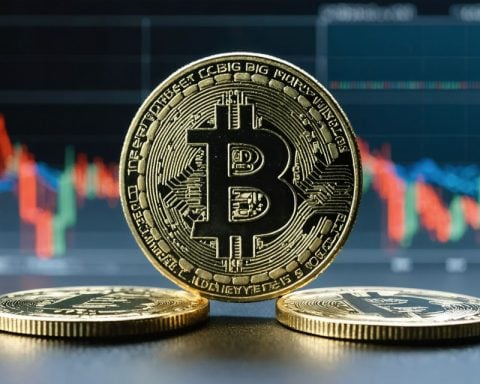Russian General Killed in Mysterious Blast
In a shocking event in Moscow, a notorious figure in the Russian military hierarchy, Lieutenant General Igor Kirillov, met a violent end. Kirillov, the head of the country’s Nuclear, Biological and Chemical Protection Forces, was killed by a bomb concealed in an electric scooter as he exited an apartment building not far from the Kremlin.
This incident occurred shortly after Kyiv accused him of committing egregious war crimes by using banned chemical weapons against Ukrainian forces, marking a pivotal moment in the ongoing conflict. Graphic images shared on social media depict the chaos, with debris littering the scene and the chilling sight of two lifeless bodies in blood-stained snow.
The United Kingdom had imposed sanctions on Kirillov just weeks prior, citing his role in deploying dangerous agents and serving as a vocal proponent of Kremlin disinformation. In light of Kirillov’s actions, Ukraine’s Security Service documented over 4,800 instances of chemical weapon use attributed to him since the onset of hostilities.
Following the explosion, the Russian Investigative Committee initiated a criminal investigation, confirming that the blast claimed two lives, the second victim named Ilya P. As the city grapples with this shocking assassination, there has yet to be any pointed claim of responsibility from Ukrainian authorities. Kirillov’s downfall raises questions about the future of Russia’s military leadership and ongoing tensions in the region.
Shocking Turn of Events: High-Ranking Russian General Assassinated
Overview of the Incident
In a striking blow to the Kremlin, Lieutenant General Igor Kirillov, the commander of Russia’s Nuclear, Biological, and Chemical Protection Forces, was killed in a bomb attack involving an electric scooter. This assassination occurred near the Kremlin, intensifying the ongoing turmoil surrounding Russia’s military actions, especially in the context of its conflict with Ukraine.
Background on Igor Kirillov
Igor Kirillov had been a contentious figure, facing numerous accusations from Ukrainian officials regarding the use of chemical weapons against their forces. In the lead-up to his death, he had been the subject of international sanctions imposed by the United Kingdom due to his alleged involvement in deploying chemical agents and promoting false narratives for the Kremlin. Kirillov was linked to over 4,800 instances of chemical weapon employment since the onset of hostilities in Ukraine, placing him at the center of international scrutiny and condemnation.
Details of the Assassination
The assassination took place as Kirillov exited a residential building in Moscow. Reports confirmed that the explosion resulted not only in Kirillov’s death but also claimed the life of another individual identified as Ilya P. The Russian Investigative Committee has since launched an inquiry into the incident, which raises several critical questions about the security of high-ranking officials and the implications of this high-profile incident.
Implications for Russian Military Leadership
Kirillov’s assassination points to significant fractures within the Russian military hierarchy and raises concerns about internal security. It underscores the potential for unrest within the ranks and could lead to a reevaluation of military strategies as the conflict in Ukraine persists. Furthermore, the lack of a clear claim of responsibility suggests a complex web of political motivations behind the attack, potentially involving elements both within Russia and abroad.
Future Predictions and Insights
As tensions in the region escalate, the assassination could pave the way for deeper investigations into Russian military operations and foreign interference. Analysts predict that this event may spur further scrutiny into military commands and their capabilities, alongside increasing calls for accountability regarding human rights violations associated with chemical weapon deployments.
Conclusion
The violent death of Lieutenant General Igor Kirillov not only sends shockwaves through Russia’s military ranks but also signals a turning point in the ongoing conflict with Ukraine. As investigations continue, the international community will be watching closely for the implications this incident has on the future of military leadership in Russia and the wider geopolitical landscape.
For more insights on international military affairs, visit BBC News.

















